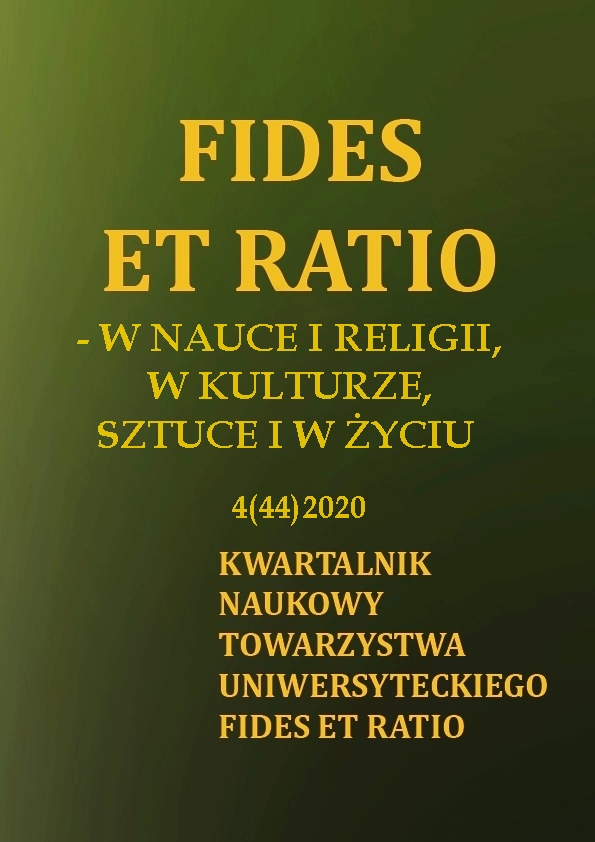Abstract
The text is a reflection on the human being viewed as a composite (compositum) of souland body. It explores the role of the soul as the spiritual substance of a human being, which initiatesand sustains his existence, and remains after the separation of the soul from the body. The spiritualsubstance, which in relation to the body is an ontic and genetic code, comes here to the fore. The viewof the human being as a composite of soul and body draws on St. Thomas Aquinas’ thought, which inturn derives from Aristotle’s philosophy and especially his categories of being. On this basis,a detailed analysis of the structure of being was made and the following existential composites werediscussed: essence and existence, act and potency, matter and form, with particular attention paid tosubstance and accidents. The composite of soul and body was first viewed as spiritual substance, andthen the latter’s relation to the body was analysed. Of the many meanings of the term substance citedin the text, only the one that forms the basis for accidents was further explored. All this was followedby the presentation of several contemporary philosophical interpretations of the accidents inconnection with substance and the physical body. The accidents helped to formulate the place of thebody and biological sex in the context of human spiritual substance and the latter’s meaning fora person’s identity. The text mentions the mechanism of sexual dimorphism, which is already formedat the molecular level, and the theological view on consequences of the destruction of the body-soulcomposite after the separation of the two. The fides-at-ratio method was applied in search of the truthabout the human being and about the sources of his identity, where ratio was represented bymetaphysical and biological (genetic) analysis, whereas fides – by theological reflection based on theelements of biblical anthropology.
